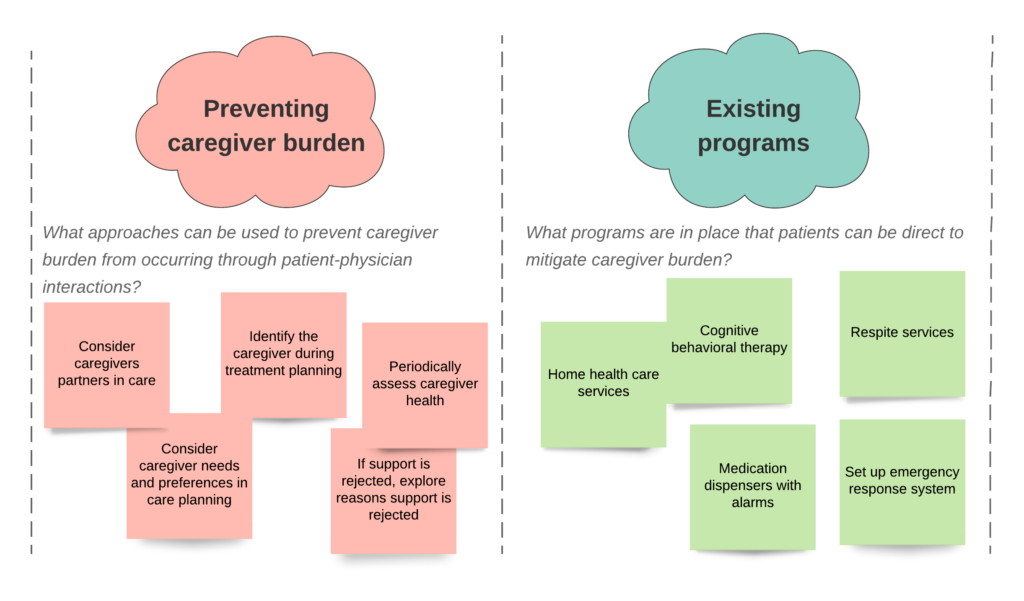Let's talk about...
caregiver burden
Caregiver burden is defined as the extent to which caregivers perceive that caregiving has had an adverse effect on their emotional, social, financial, physical, and spiritual functioning (Zarit, Todd, and Zarit, 1986). This definition suggests caregiver burden is highly individualized and different individuals may experience it at different thresholds.
As the aging population continues to increase, a greater proportion of people have chronic disease. Combining this with lack of formal support means higher caregiver burden prevalence. Spousal caregivers face great challenges because they often live with the care recipient, lack choice in the caregiving role, and lack awareness of the toll of caregiving (Burton et al., 1997). Many caregivers report feeling untrained and ill prepared for the tasks necessary. This leads to feelings of abandonment from the health care system (Lilly et al., 2012). Clinical outcomes of caregiver burden are mortality, weight loss, poor self-care, sleep deprivation (Adelman et al., 2014).

What Steps Are Being Taken To Prevent Caregiver Burden?
(1) Health care providers should consider caregivers as partners in care.
(2) Identify caregivers in clinical plans and proceed to incorporate their needs and preferences in care planning.
(3) Recognize the need for periodic assessment of care outcomes. Evaluate caregivers separately, since they have been known to neglect their own health.
(4) If care recipient or caregiver would not like to accept support, explore the reasons why.
Existing Programs
(1) Technology can reduce dependency on caregivers (e.g. emergency response system, medication dispensers with alarms)
(2) Cognitive behavioral therapy
(3) Home health care services
(4) Respite services (provides short-term relief with in-home temporary caregiver)
References
Adelman RD, Tmanova LL, Delgando D, Dion S, Lachs MS. Caregiver burden: a clinical review. Jama. 2014; 311(10):1052-60.
Burton LC, Newsom JT, Schulz R, Hirsch CH, German PS. Preventive health behaviors among spousal caregivers. Prev Med. 1997;26(2):162-169
Lilly MB, Robinson CA, Holtzman S, Bottorff JL. Can we move beyond burden and burnout to support the health and wellness of family caregivers to persons with dementia? evidence from British Columbia, Canada. Health Soc Care Community. 2012;20(1):103-112.
Zarit SH, Todd PA, Zarit JM. Subjective burden of husbands and wives as caregivers: a longitudinal study. Gerontologist. 1986;26(3):260-266.
